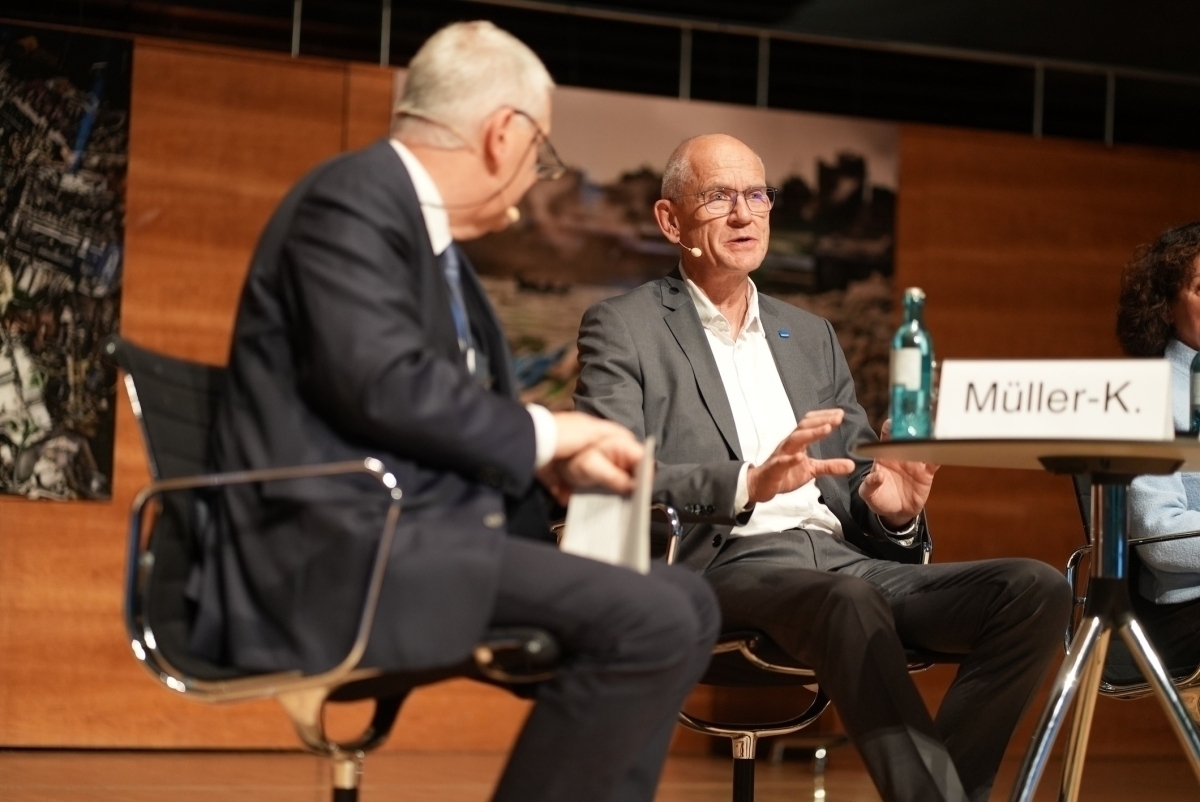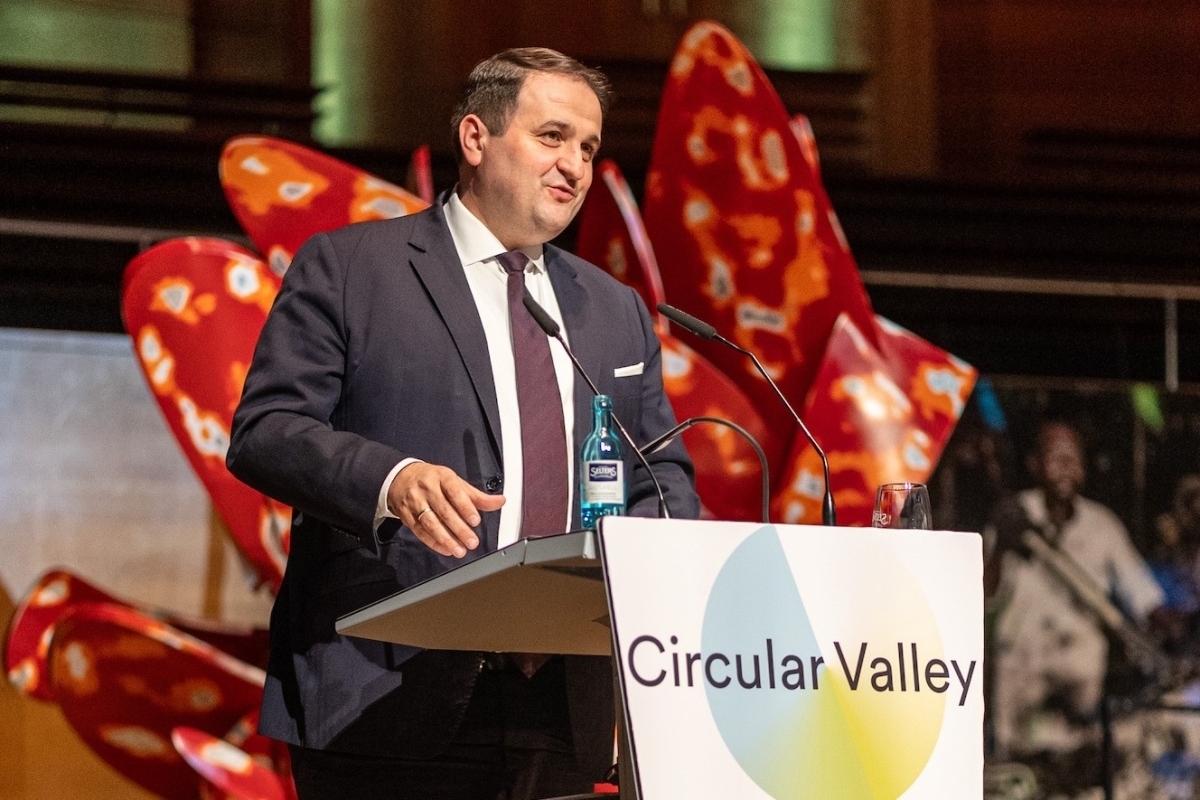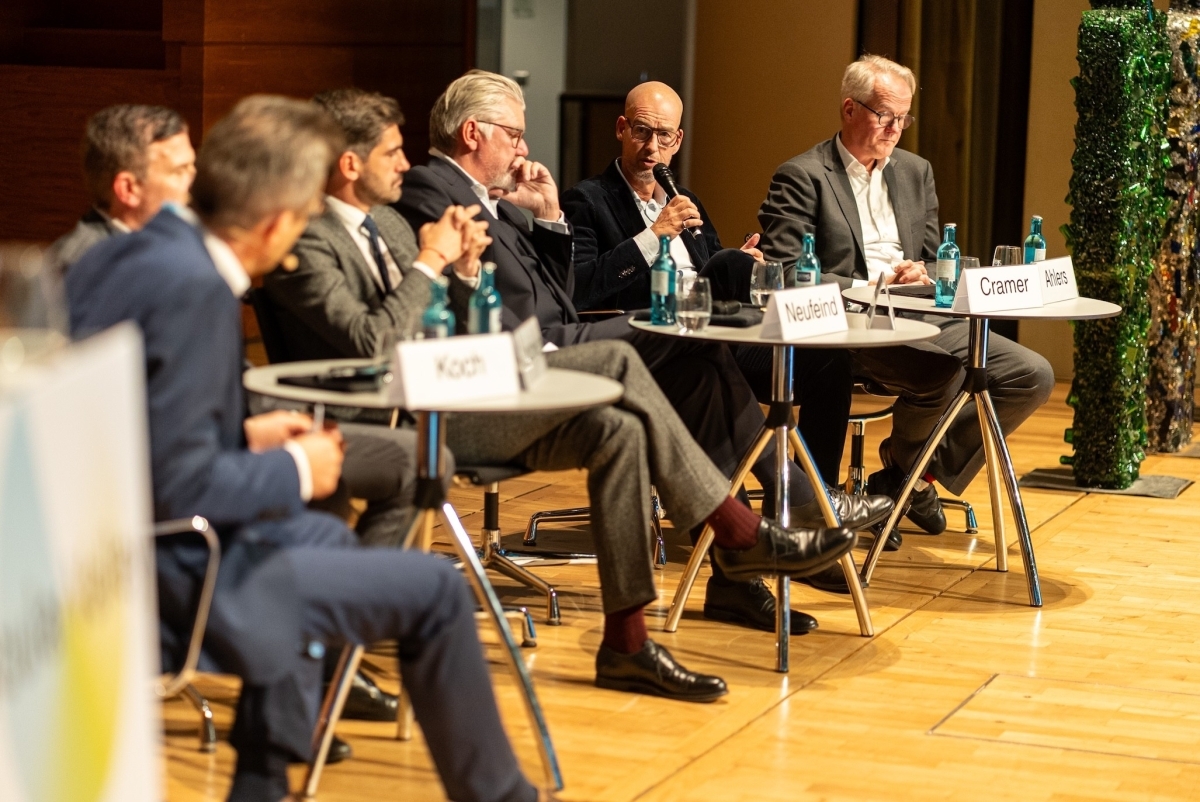The Circular Valley Forum sends a strong signal for cooperation
27.11.2025At the annual circular economy meeting on November 14, 2025, decision-makers from politics, business, research, and civil society came together to discuss the most important issues surrounding circular transformation. The central idea: progress can only be achieved by working together.
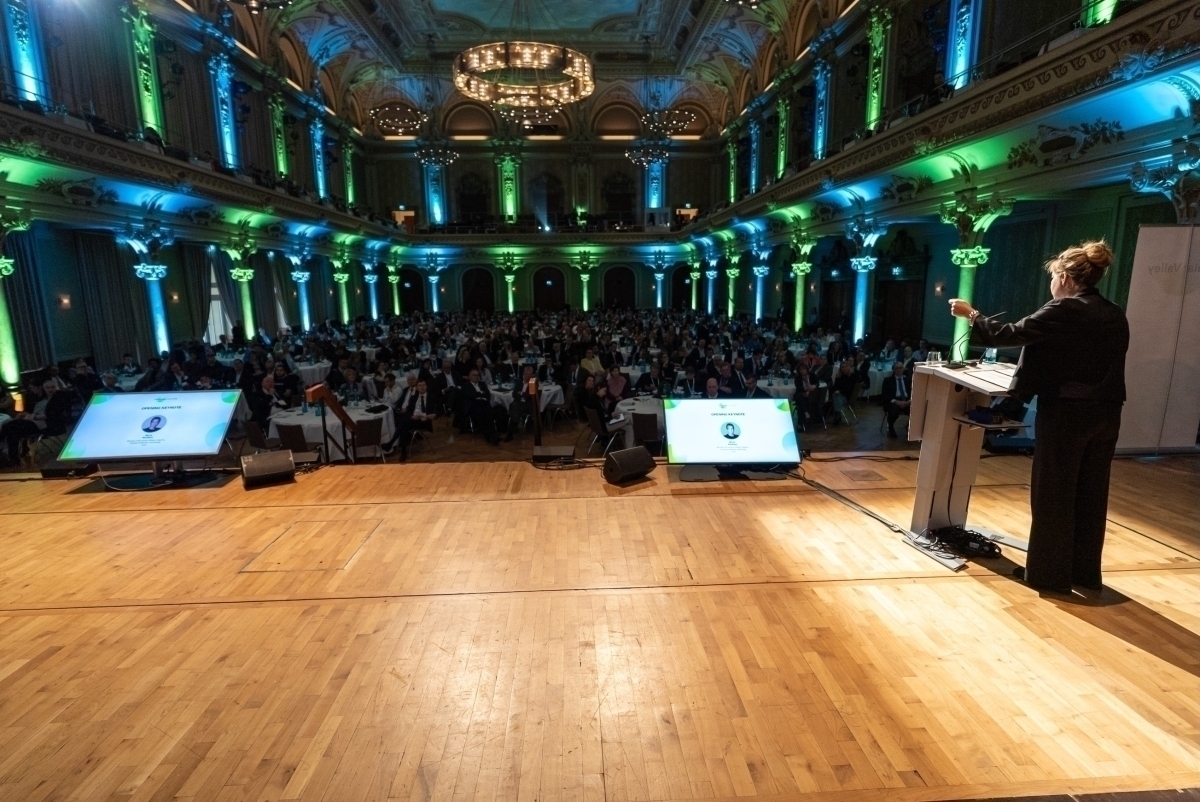 © Jan Turek/Circular Valley
© Jan Turek/Circular Valley
"The circular economy is key to making our economy resilient in times of uncertainty and change," said Mona Neubaur, North Rhine-Westphalia's Minister for Economic Affairs, in her opening speech at the Circular Valley Forum 2025. "Only through innovation, courage and cross-border cooperation can we initiate the necessary changes." This year's forum also adopted this motto: ‘Action across Borders and Industries.’
More than 1,200 decision-makers gathered at the historic town hall in Wuppertal: Among them were CEOs from large corporations and innovative medium-sized companies, as well as executives from research institutions and universities, and key figures from civil society.
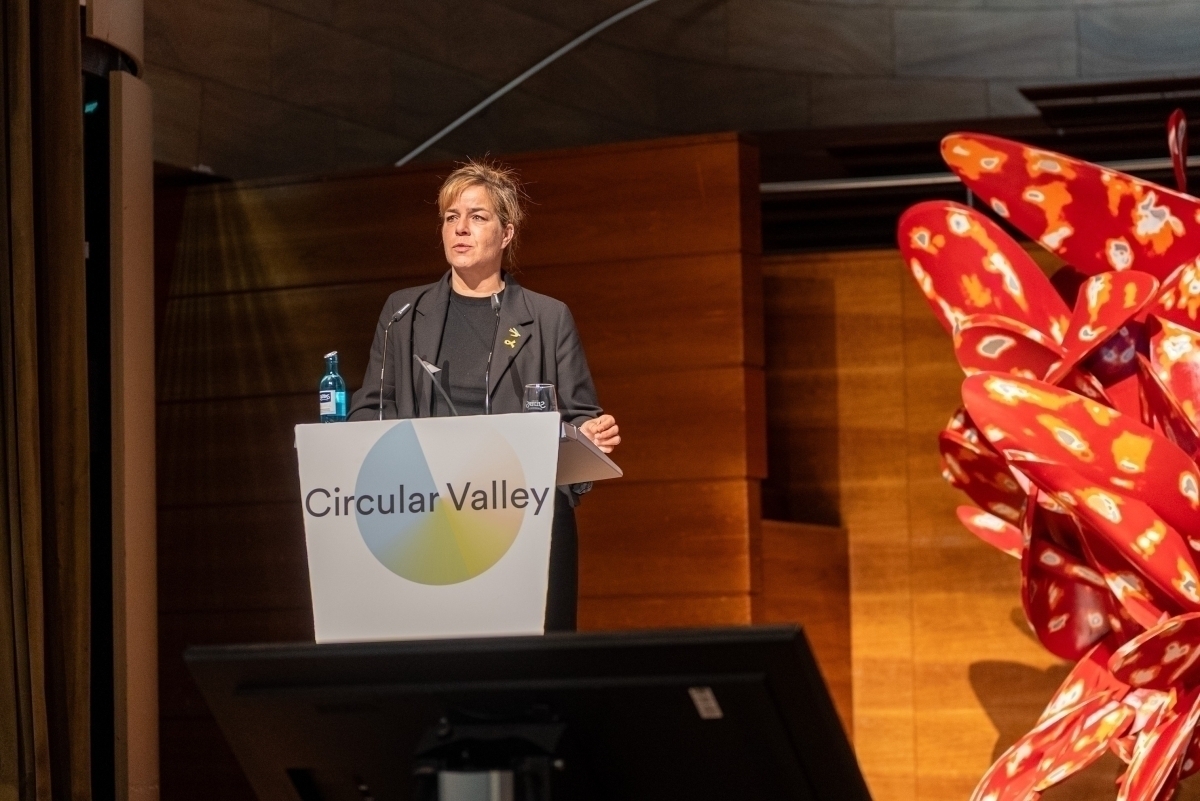 © Jan Turek/Circular Valley
© Jan Turek/Circular Valley
A wide variety of fields contributed insights and perspectives. After the minister's opening speech, Dr Thomas Latzel, president of the Protestant Church of the Rhineland, demonstrated how the circular economy and faith intersect. For instance, this can involve preserving creation, promoting genuine democratic participation and ensuring fair economic processes.
Video-Greeting from Federal Environment Minister Carsten Schneider: Circular Valley Forum is a good example of cooperation
The forum also brought together representatives from various industries for discussions on the current state of the chemical and metal industries, as well as the construction sector. The discussions focused on existing innovations and the ways in which good cooperation across national borders can drive the transition to a circular economy. Start-ups currently receiving funding from the Circular Economy Accelerator also had the opportunity to present their innovative business ideas at the forum.
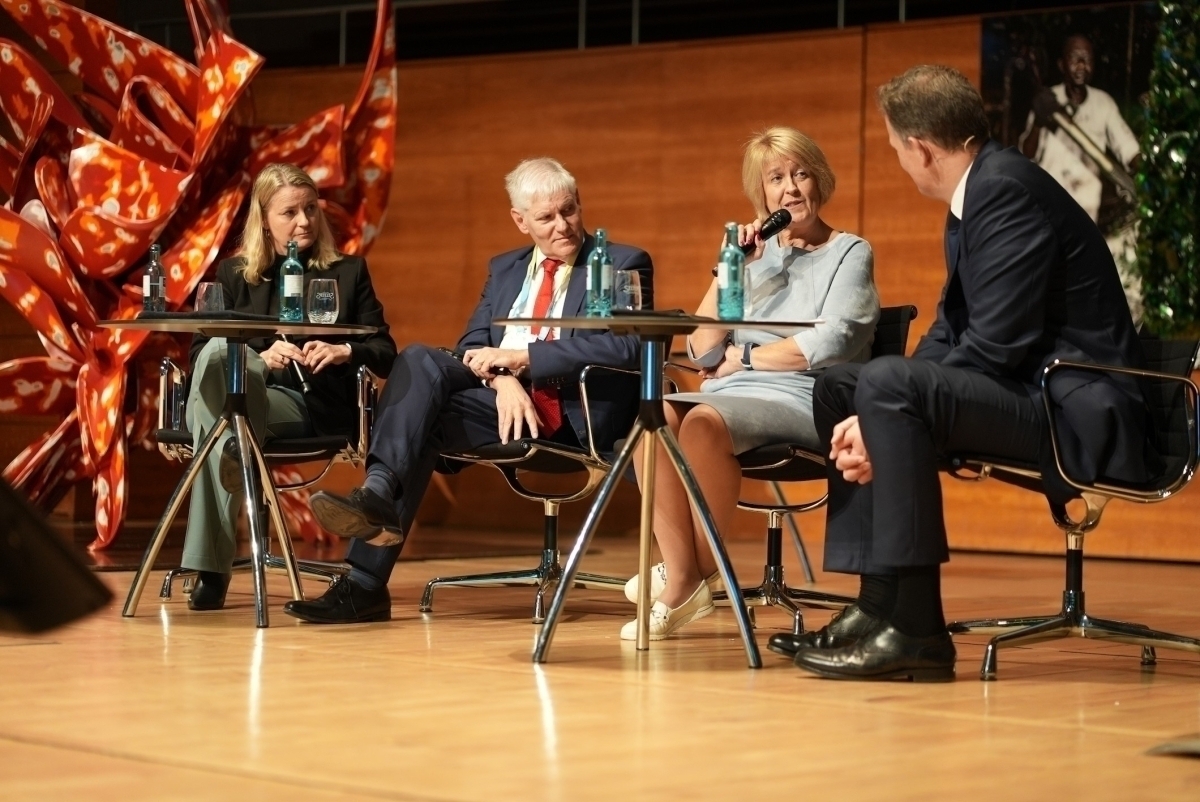 © Jan Turek/Circular Valley
© Jan Turek/Circular Valley
In a video message, Federal Environment Minister Carsten Schneider emphasized the importance of the circular economy for achieving climate targets, but also for independence in uncertain times. “For a country with few natural resources like Germany, the circular economy ensures resilience and security of supply and helps us remain competitive,” said the minister. The federal government is therefore working on implementing the National Circular Economy Strategy, which was adopted last year. He also emphasized: “The circular economy only works when politics, business, and civil society work together. The Circular Valley Forum is a good example of such cooperation and gives us confidence for the future.”
“The circular economy links environmental goals with economic power, as well as smart economic decisions with sustainability.”
The focus of the Circular Valley Forum 2025 was cross-border cooperation in the heart of Europe. The existing cooperation between Flanders and North Rhine-Westphalia is being expanded to encompass the Netherlands. The Netherlands started addressing the transition to a circular economy at a political level early on. The first national programmes were launched in 2016. "This has raised awareness of the issue in society," says Arnoud Passenier, advisor to the Dutch government on the circular economy. The task now is to scale up solutions, and future cooperation will be valuable in this regard.
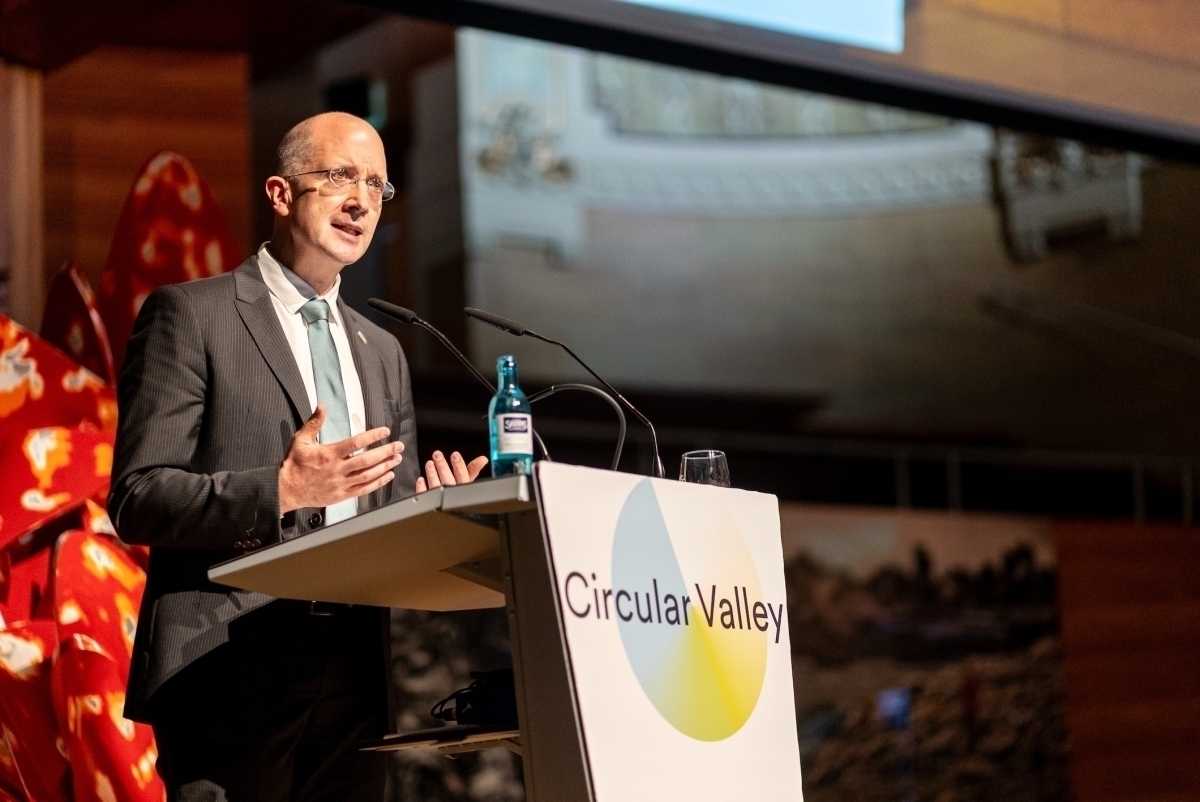 © Jan Turek/Circular Valley
© Jan Turek/Circular Valley
Susanne Hagenkorth-Rieger from the North Rhine-Westphalia Ministry of Economic Affairs is convinced that the circular economy creates new jobs, makes industry more resilient, and promotes sustainability. “It links environmental goals with economic power and smart economic decisions with sustainability.”
“Now is the right time to act,” says Brigitte Mouligneau, Transition Manager Circular Economy at Flanders Circulaire. The cooperation to date shows what is possible through such cross-border projects. On the evening of the forum, the expanded cooperation with the new partner, the Netherlands, will be sealed.
A day full of inspiration – and a decisive step for Europe
The event demonstrated an impressive willingness to engage in exchange and joint development. At the same time, the new trilateral agreement between North Rhine-Westphalia, Flanders and the Netherlands was an important milestone for Europe.
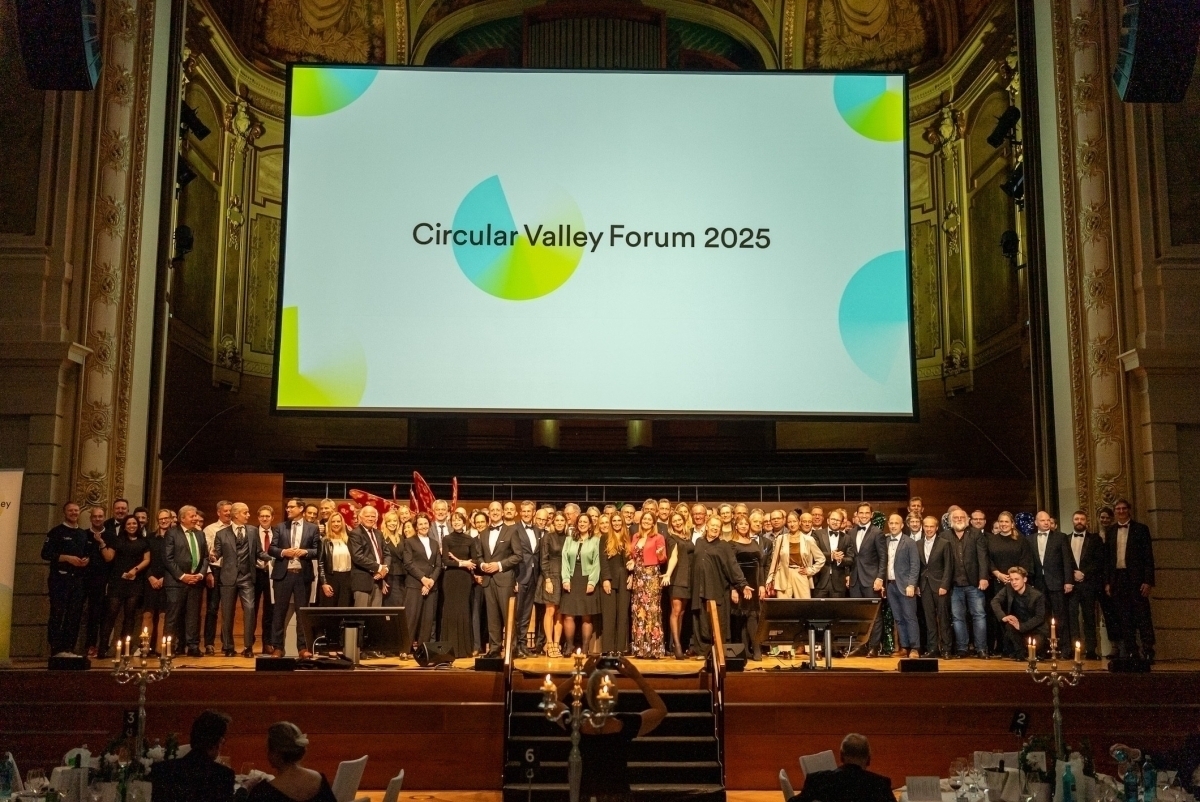 © Jan Turek/Circular Valley
© Jan Turek/Circular Valley
On Friday, the Circular Valley Forum 2025 brought together more than 1,200 decision-makers from politics, business, science and civil society to demonstrate the importance of the circular economy for Europe, and to showcase the power that can be generated when regions and different industries collaborate. The motto of this year's forum was “Action across Borders and Industries”.
The forum gained strong momentum from the outset. Following opening statements from Dr Thomas Stoffmehl (Vorwerk) and Dr Dorothee Becker (Becker Group), as well as a keynote address from Mona Neubaur, the North Rhine-Westphalia Minister for Economic Affairs, numerous panels demonstrated the current state of the circular economy in various industries. Dr Thomas Latzel, president of the Protestant Church in the Rhineland, offered a unique social perspective, highlighting that the circular economy also raises issues of responsibility, social participation and the preservation of the environment.
Lively exchange also between the panels
Throughout the day, experts from the metal, chemical and building materials industries discussed new technologies, rising recycling rates and the conditions required for scalable solutions. The European perspective also played a central role, with delegations from North Rhine-Westphalia, Flanders and the Netherlands presenting their close cooperation and the potential of the trilateral region as a core area of the European circular economy. Pitches from startups in Batch 9 of the Circular Valley Accelerator demonstrated which new technologies are close to being ready for the market.
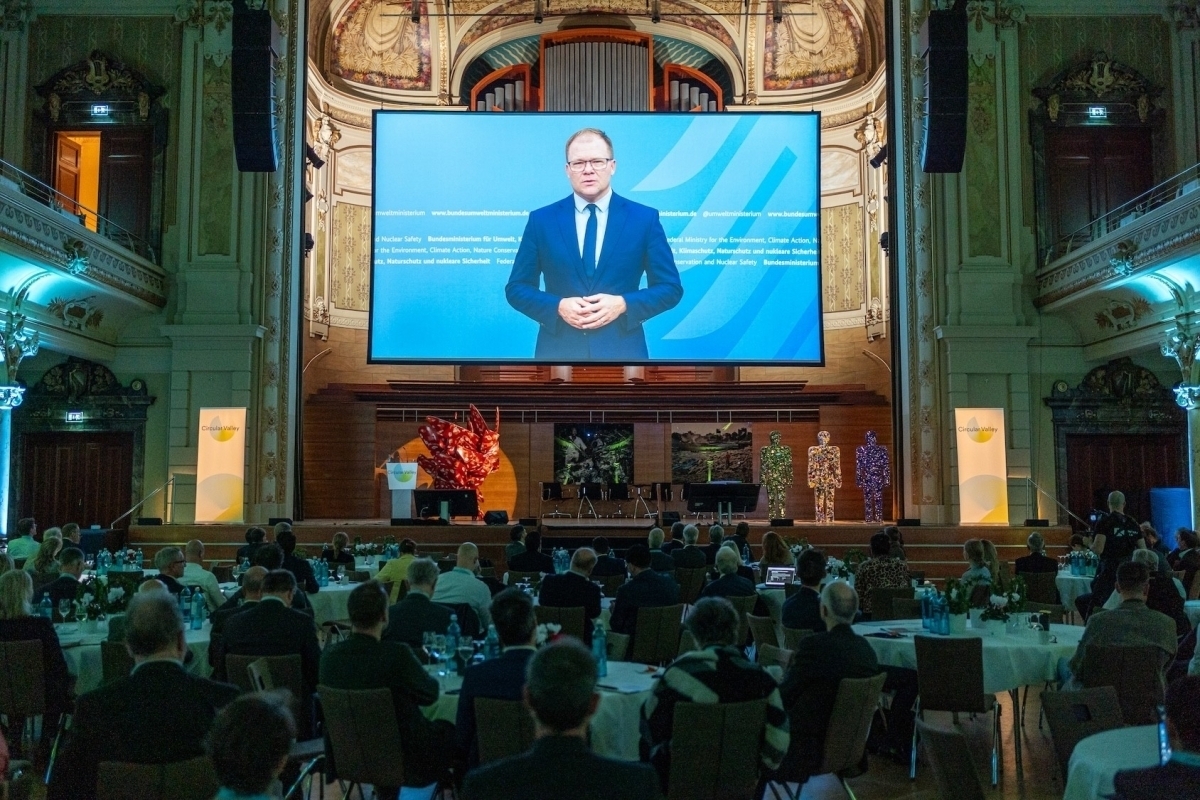 © Jan Turek/Circular Valley
© Jan Turek/Circular Valley
The afternoon sessions covered topics including digital product passports, innovation structures, energy issues, regional economic development and the tech industry's role in circular processes. However, it wasn't just the programme that shaped the day; the special atmosphere at the Circular Valley Forum also played a part. "You could feel how willing people were to exchange ideas. That's exactly what we wanted: not only for people to discuss issues in the panels, but also to meet each other, share ideas and think ahead together," said Dr Carsten Gerhardt, Chairman of the Circular Valley Foundation. Participants enjoyed talking to each other across their industries and professional fields. "The forum thrives on this energy, which was palpable throughout the day. This joy of exchange is a key driver of transformation."
Highlight of the day: The trilateral agreement
In the evening, leading representatives from North Rhine-Westphalia, Flanders and the Netherlands signed a joint declaration on cooperation. This officially expands the existing collaboration between North Rhine-Westphalia and Flanders to encompass the Netherlands. NRW Environment Minister Oliver Krischer emphasised the importance of signing the declaration: "I am very pleased that we now have comprehensive cooperation with the Netherlands and Flanders, which will further strengthen our regional expertise and expand our exchanges, enabling us to have a broader impact."
Krischer also emphasised the importance of the circular economy in addressing the major challenges of our time. "When it comes to climate protection and adaptation, the circular economy is key. It is the answer to securing our planet's future and managing our limited resources. It is an ecological solution, but also an economic one.”
Implementation begins immediately after signing.
Work began immediately after the signing ceremony. 'We sat down together straight away and started planning the next steps,' says Dr Carsten Gerhardt. Representatives from all three regions discussed concrete proposals for actions and projects to be implemented beyond the regions and presented to Brussels.
Gerhardt sees this as a strong sign. "The Circular Valley Forum should be a place for implementation, not announcements. That is exactly what happened today. Today showed how much can be achieved when people who are truly committed to making a difference come together.”

